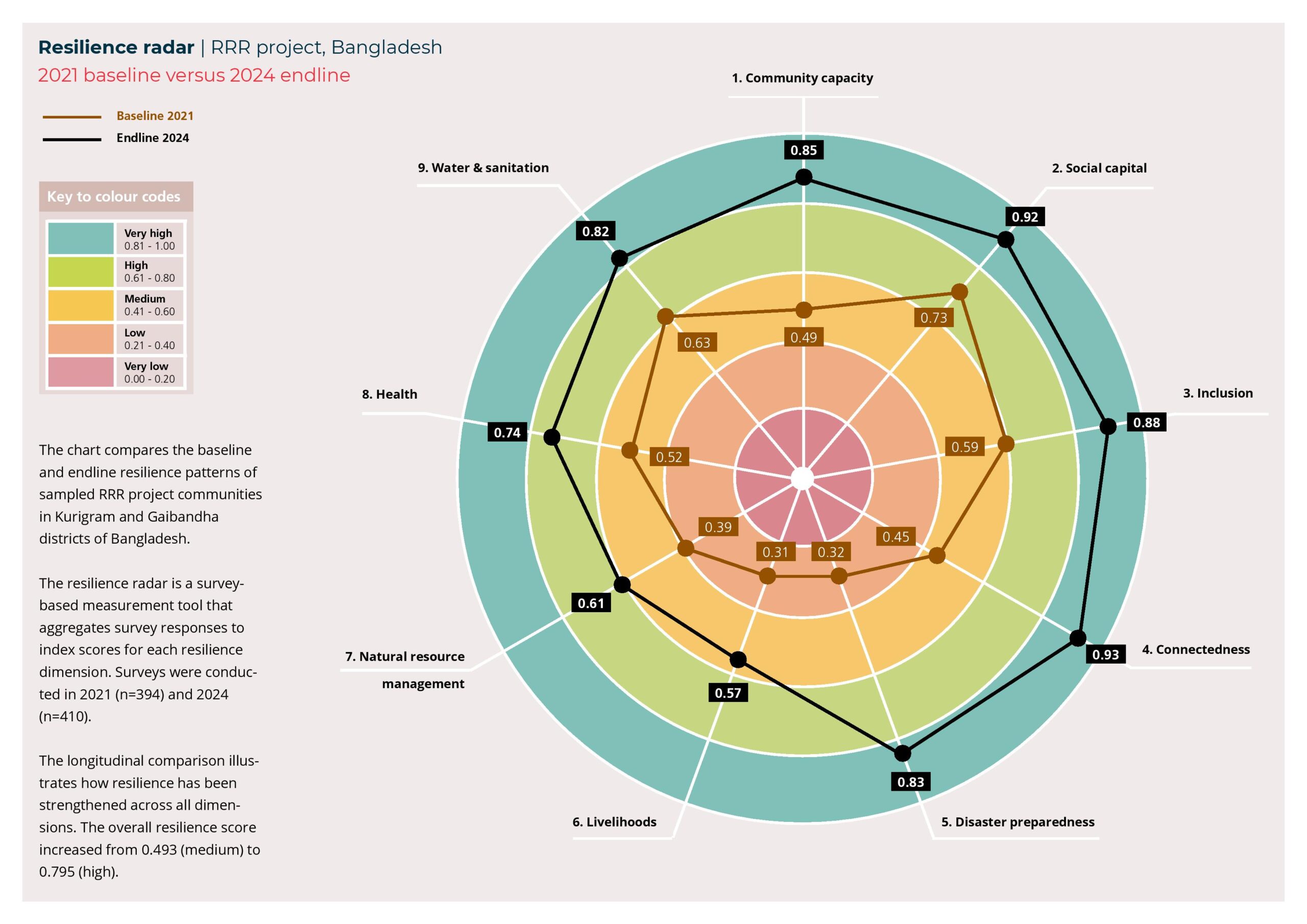Resilience amidst the river. Project evaluation: Reinforcing rural resilience (RRR) through a string National Society

The evaluation of the RRR project is a powerful case study of efforts to strengthen community resilience. Implemented by Bangladesh Red Crescent Society (BDRCS) and Swiss Red Cross (SRC) between 2021 and 2024, the project reached a population of 235,200 across 88 communities in Bangladesh’s north-western districts of Kurigram and Gaibandha.
With holistic programming and integral aspects to enhance the functions and connections of communities, the RRR project contributed to strong advances to community resilience. The evaluation noted a 61.3% increase in the average resilience score, as measured through the survey-based resilience radar. All social dimensions (community capacity, connectedness, social capital, and inclusion) are now rated as very high, representing a strong foundation that communities can build on.
The practice of clustered plinth-raising was one of many effective elements: homesteads for 8-9 households were placed on elevated grounds (at least 1 meter above the highest flood markers) and equipped with latrines, tube wells, vegetable gardens, and space for livestock — thus lowering expected losses from frequent floods.
Given the dramatically evolving climate crisis as well as high exposure and sensitivity to hazards and stressors typically found in Bangladesh’s rural communities, the RRR project is a powerful case of what can be achieved in a relatively short timeframe.
